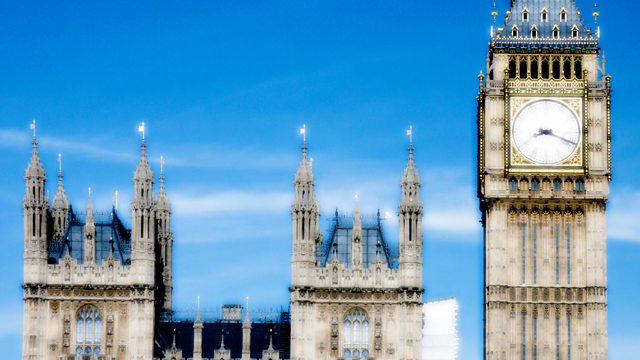Episode 4
Peter Hennessy concludes his series of discussions examining how a government would be formed after the election if no party wins an overall majority in the House of Commons.
With the prospect of a closely fought general election on 7th May, Peter Hennessy, the historian, is joined by Peter Riddell, Director of the Institute for Government and former Chief Political Commentator for 'The Times', and Professor Robert Hazell, Founder and Director of the Constitution Unit at University College, London. to discuss how a government might be formed if there's another hung parliament.
In the final programme of this series, they examine the ground-rules - conventions, laws, precedents and principles - for deciding whether a prime minister and government can remain in office, or a new prime minister should be appointed and a new government formed. When no single party won an overall majority in 2010, it took five days before talks between the parties produced a coalition between the Conservatives and Liberal Democrats. Their agreement enabled the Queen to appoint David Cameron as prime minister, because he could command the confidence of the House of Commons.
In the hung parliament of 1974, the leader of the largest party in the Commons, Harold Wilson, formed a 'minority government'. In effect, the prime minister of a minority government commands the confidence of the House by calling the other parties' bluff, defying them to defeat the government in a confidence vote, thereby triggering an election. However, it has become more difficult for a prime minister to engineer an early election since 2011, when Parliament passed the Fixed-term Parliaments Act. Peter Hennessy and his guests examine how a government would be formed in the event of a hung parliament and weigh the risks of a constitutional and political crisis.
Producer: Rob Shepherd.
Last on
More episodes
Previous
Next
You are at the last episode
Broadcast
- Fri 20 Mar 2015 13:45大象传媒 Radio 4

